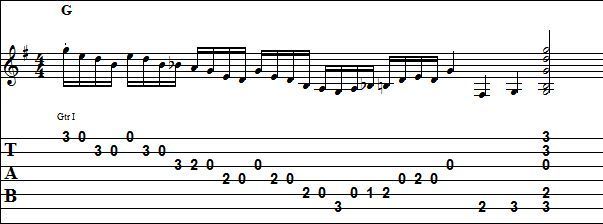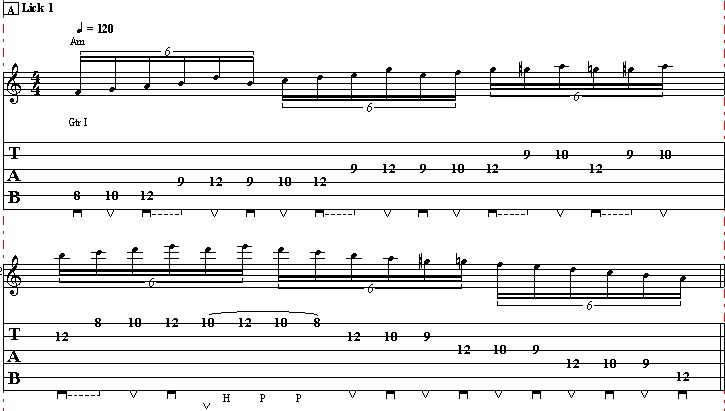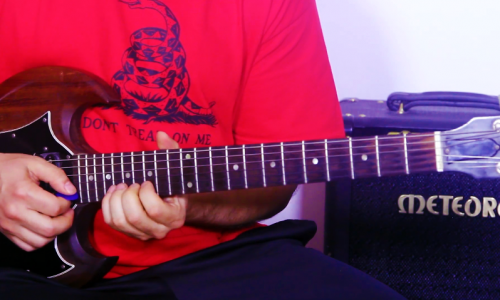Bluegrass is a sub genre of country music and considered to be an important part of the musical roots of America. Bluegrass may have its roots in country, but the blues and folk play an important role in bluegrass too.
Bluegrass guitar scales are primarily the same scales as you’d find in other types of music, particularly in country. Major and minor scales play an important role in bluegrass, as well as the blues scale, shown in the example below.

Other scales that play an important role in the bluegrass sound are the major and minor pentatonic sales, used primarily in the same capacity as country lead guitar players use them over seventh chords.

While bluegrass guitar scales are not different than scales used by other guitar players, bluegrass guitar playing is vastly different. Like a lot of country music, the licks and solos can sound deceptively simple, but the application of major and minor (and sometimes both) help elevate a lot of bluegrass music in complexity.
Check out the G major scale exercise below and play it. This is ascending/descending run you can use to work on flat picking technique.

The next example uses a flat picking pattern, outlining a C major chord.

All of these examples use the same scales as rock and country players use. The difference is the actual style of playing. A scale is a scale, simple as that. The way those scales are applied over chord progressions and the particular playing techniques are what make the scale work in the genre of your choice.
You can study bluegrass guitar scales as they apply to bluegrass music, but don’t forget studying blues and country technique along with those scales. Those genres are a large part of what goes into the bluegrass style. Many of the same applications used in these genres are used in bluegrass, and all of these genres are built from the same major and natural minor scales.
If you are into the Bluegrass style, I recommend you to check out this course:



